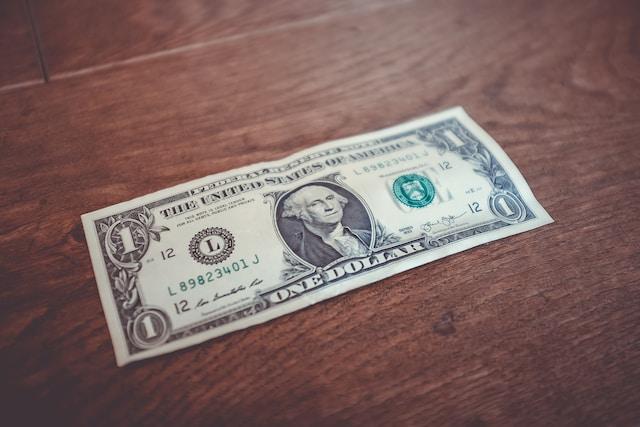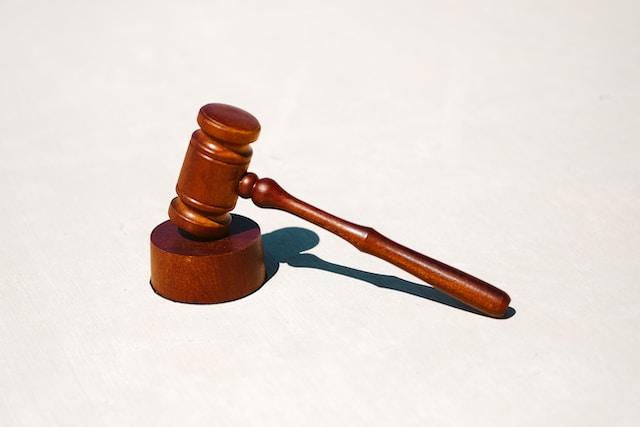What is the Difference Between Bail and Bond?
Our product recommendations are made independently, but we may earn affiliate commissions if you use a link on this page.
In legal cases, bail and bond are often used interchangeably. However, they aren’t the same thing. Although they are both methods to let a person go who is waiting for their trial, each involves a different form of payment.
You will need bail or a bond to remove the defendant from early imprisonment. A bail is a monetary amount paid to the judge, while a bond is a financial pledge from a bonding company.
If you’re curious about the difference between bail and bond, keep reading to understand the legal terms.

What is Bail?
Bail is a monetary amount. It’s usually determined by the judge in a court of law and is the amount the defendant must pay to be released from jail while waiting for their trial. Bail ensures the defendant shows up to the court cases after being temporarily let go.
Sometimes, a person may not show up for their trial after they’ve paid bail and gone back home. If they don’t return for their court date, the bail money is forfeited, and the individual loses that sum. It’s a monetary incentive system and changes based on the severity of the crime committed.
How Does Bail Function?
The arraignment of the defendant is the typical starting point for bail. In a court of law, the charges are read against the defendant. They then can make their plea in front of the judge.
From there, the judge will determine a proper bail amount for the defendant. Items like their likelihood to run away or history of committing crimes will make the bail higher or lower. Once the number is announced, the defendant has some options.
A defendant may pay the amount to the court if they have it or use the assistance of a family member or friend willing to pick it up. If they can’t, a bondsman may come into play to keep them out of jail.
What Are the Types of Bail?
Although the most common type of bail involves cash, there are multiple types. It’s helpful to know what they are.
There are four types of bail, including:
- __Cash bail: __The defendant pays for their release to the court.
- __Property bail: __The defendant uses collateral as bail, such as a car or boat.
- __Surety bond: __A bail bondsman pays for a fee from the defendant (otherwise known as a bond).
- __Personal recognizance: __The defendant promises they will reappear in court and goes by their word.
Each has its place in a court of law.
Again, each bail depends on the reliability of the defendant. Someone in the room for the fourth time likely won’t be able to use personal recognizance like a first-time petty thief.
How Does A Judge Determine Bail?
A judge doesn’t just pick an amount that sounds good and declare it as bail. There are several factors they consider before the final amount.
Judges account for factors such as:
- Prior record of crime
- Risk of flight
- Any bonds given in the past
- Status of finances
- Any available outstanding warrants
- Criminal history
Each will lower or raise the bail.
Someone with a higher risk will have a higher bail than a low-risk defendant. They need more incentive to return as the punishment will likely be more severe.

Pros and Cons of Bail
If you find yourself in the seat of the defendant, it’s critical to consider your choices before landing on bail or bond to remove yourself from jail before your trial. Each has varying pros and cons and will impact your finances differently.
There are many benefits to bail. It allows defendants to refrain from custody while awaiting their trial, which is ideal for family and friends. Their loved ones don’t have to lose a family member before the proper time. Bail is simple and cheaper if the individual doesn’t have a bad record and is low risk.
However, bail can be expensive. If the defendant can’t afford it, they risk staying in jail until it’s time for their court date. If they put up the personal property for collateral, they risk losing it if they refuse to show up. Bail is a risk, but so is a bond.
What is a Bond?
A bond is typically a secondary resort for those awaiting a trial and looking to stay out of jail. It’s a surety bond and a contract between the defendant, the court, and a bonding company.
The bonding company will offer a bondsman to offer the monetary amount to prove the defendant will show up to the required court dates for their trial. They are proof that you will be there, as opposed to money. It costs a little more to use a bond instead of bail.
How Does a Bond Function?
Most defendants resort to bonds if the bail is much higher than they or any loved ones can afford. If they aren’t sure what to do, they may resort to a bailsman from a bonding company. This individual charges about 10% of the bail amount to post a bond to the court of coverage for the full number.
Once the bail is posted through the bondsman, they are in charge of ensuring the defendant makes it to all scheduled court dates from that point on. The consequences here are much higher. If the defendant doesn’t show up, the bondsman will look for them. Often, they hire bounty hunters to track down the defendant and bring them back into the custody of the law.
What Are the Types of Bonds?
Just like bail, there are multiple types of bonds. Each has different results for the user and varying consequences if they are broken.
The types of bonds include the following:
- __Cash bond: __The defendant pays the bail amount to the bondsman.
- __Immigration bond: __This option comes into play when non-immigrants are detained.
- __Property bond: __The defendant uses property as collateral, such as a boat.
- Federal bond: The defendant uses this option if they committed a federal crime.
Each puts a different level of severity on the line for the defendant.
Typically, the court or bondsman will report the most effective type of bond for the situation. If the defendant does not agree to the bond and won’t pay for bail, they will go to jail until the appropriate date of their trial.
Pros and Cons of Bonds
A bond is more complicated than bail, but there are cases where it comes in handy. Like bail, it’s ideal to consider the pros and cons just in case you find yourself in a defensive position in a court of law.
The biggest advantage of going with a bond is the affordability. Defendants who cannot pay for bail will be able to afford a bond, as they only have to pay a portion to the bondsman. It provides those with less money a chance to avoid jail before the official trial date.
However, if the defendant doesn’t show up on their court date, the bondsman may charge more fees and money. Also, the nonrefundable fee paid at the beginning of the process is still pricey. Plus, it’s an additional step in the already complicated process.

What If Someone Can’t Afford Bail?
If someone can’t afford to pay bail, they will go to jail. A family member or friend can pay the bail for them, even while they are in jail. However, the bail must be paid. There is no other way around this system if the defendant wants to remain out of imprisonment before anything is proven.
An individual who can’t afford bail might go with a bond to cover the cost in a court of law. However, they are required to pay the bondsman for the act and may owe them additional fees over time.
Why Might Bail Be Denied?
There are some cases where bail might be denied, and the defendant has no choice but to go to jail. These instances are critical and typically occur after a serious crime is committed.
For example, states like Georgia will deny bail for crimes like a home invasion, aggravated child molestation, or rape. If a person is deemed too dangerous to be out in public, the judge will keep them in jail until they are determined to be innocent or guilty by a trial of their peers.
Which Is The Better Option, Bond or Bail?
If you’re a defendant, it’s critical to know whether bond or bail is better. At the end of the day, the answer depends on your case and how much money you have in your bank account. If you can afford bail, pay it right away. If you can’t, a bond is a decent option and your last resort to remain home until the court date.
Bond and bail each have pros and cons. Ensure you consider them before picking one in a court of law.
Reference Legal Explanations
If you use any of the definitions, information, or data presented on Legal Explanations, please copy the link or reference below to properly credit us as the reference source. Thank you!
-
<a href="https://legal-explanations.com/blog/what-is-the-difference-between-bail-and-bond/">What is the Difference Between Bail and Bond?</a>
-
"What is the Difference Between Bail and Bond?". Legal Explanations. Accessed on December 15, 2024. https://legal-explanations.com/blog/what-is-the-difference-between-bail-and-bond/.
-
"What is the Difference Between Bail and Bond?". Legal Explanations, https://legal-explanations.com/blog/what-is-the-difference-between-bail-and-bond/. Accessed 15 December, 2024
-
What is the Difference Between Bail and Bond?. Legal Explanations. Retrieved from https://legal-explanations.com/blog/what-is-the-difference-between-bail-and-bond/.